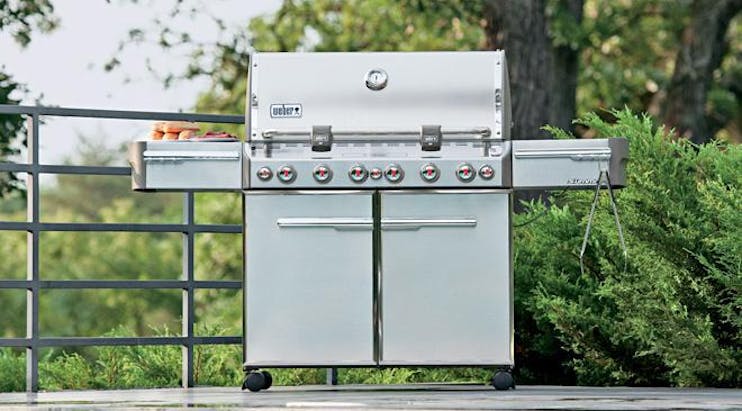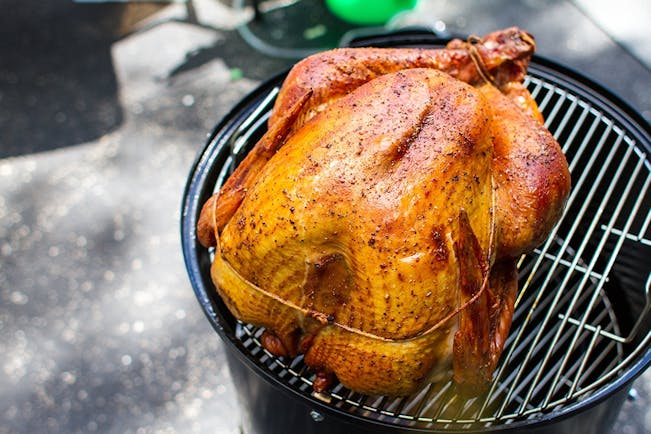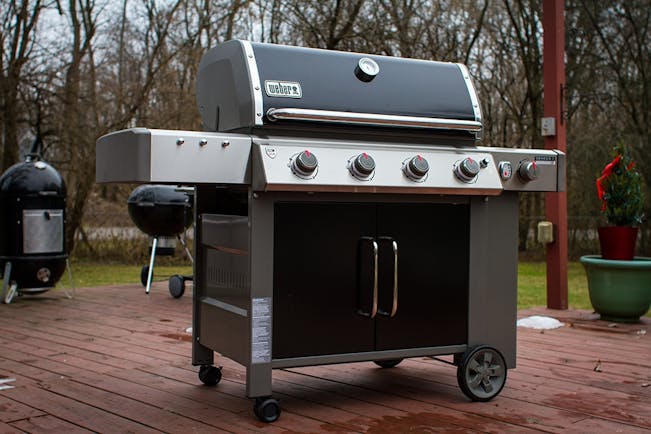Why Won't My Natural Gas Grill Get Hot?
While propane grills still out number natural gas grills by a large margin, there’s definitely something to be said for the convenience of having your grill hooked up right to a natural gas supply. If you happen to have access to a natural gas supply you can save yourself from having to take trips to your local propane exchange or propane dealer, and from worrying about running out of gas while you’re grilling. Nothing is more embarrassing than running out of propane in the middle of grilling up something delicious!
There’s a misconception that natural gas grills can’t reach the same temperatures as a propane model. As far as a Weber grill is concerned, there’s no truth to that statement. That said, there are some reasons why someone might not be able to get their natural gas grill up to the temperatures that they’ve been designed to reach. Here are some things to consider.
If it’s a new grill:
1. Are the control knobs being properly set to the high position when preheating? The start/high position on most models is the same one that you use to start the grill. The more you turn the knobs the lower you are setting the grill.
2. Were any flare fittings used to make the connection between the supply line and the quick disconnect hose? Flare fittings can cause damage to the “bridge” of the natural gas hose, resulting in a reduction of gas pressure to the grill. If you aren’t sure if you’ve got a flare fitting in your setup you can send a photo of your connection to support@weberstephen.com.
3. Is the "bridge" on the end of the hose (where it fits into the quick disconnect) broken or dented? If you aren’t sure if the bridge is damaged you can send a photo of your connection to support@weberstephen.com.
4. Are all the shut off valves on the supply line fully open?
5. Have you performed a gas leak test on the grills gas train components? You can find the complete gas leak test instructions for your model in your owner’s manual.
6. Are any other natural gas powered appliances using the same supply line?
7. Do you know the water column pressure of the gas being supplied to the grill? 7 inches of water column pressure is required for proper operation of the grill. If the pressure is not correct the grill will never operate properly. Typically, a professional gas installer is required to obtain a measurement of the gas pressure.
If you have owned the grill for a while:
1. When did you start noticing an issue? Are any other natural gas powered appliances using the same supply line? Was anything recently added? Is there any major construction happening near your residence?
2. When were the burner tubes last cleaned?
3. Is the ""bridge"" on the end of the hose (where it fits into the quick disconnect) broken or dented? If you aren’t sure if the bridge is damaged you can send a photo of your connection at support@weberstephen.com.
4. Are all the shut off valves on the supply line fully open?
5. Have you performed a gas leak test on the grills gas train components? You can find the complete gas leak test instructions for your model in your owner’s manual.
If the tips outlined above don’t help, if you find a gas leak, or you just need help in general please reach out to us at support@weberstephen.com or 1-800-446-1071 and we’ll be happy to help!



